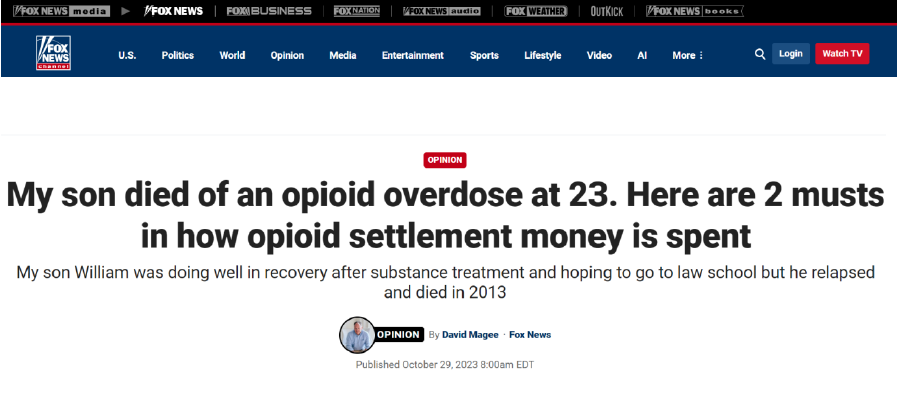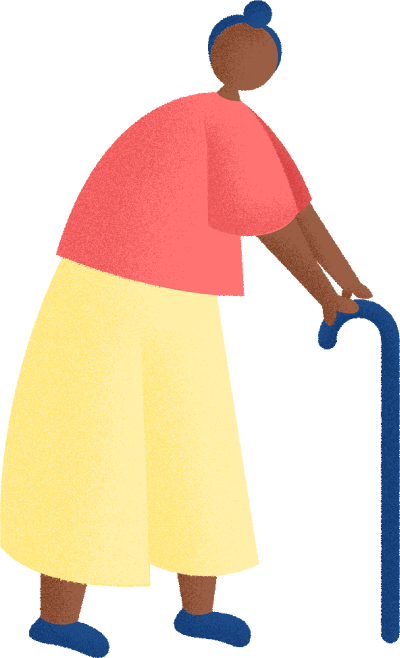A Father’s Plea for Widespread Naloxone Access
In an op-ed published over the weekend to FoxNews.com, my friend David Magee shared his family's heart-wrenching personal story about the devastating impact of the opioid epidemic. As a father who tragically lost his son William to an opioid overdose, his words echo the pain and frustration felt by countless families across the United States.
Ken Trogdon —

In his piece - which you can read at this link – David discusses several barriers and complications that various states are facing in providing a response to the opioid epidemic, along with offering tangible solutions to save lives.
One of the key components of his proposed approach is Naloxone. HarborPath has long advocated this life-saving medication and the urgent need to make it available and affordable to those who need it most.
The need for easier access to Naloxone is even more critical as fentanyl continues to spread throughout our country – and is becoming more common in fake drugs taken by our younger generations. Teenagers in particular are at risk, often unknowingly buying counterfeit drugs laced with fentanyl.
Since the tragic death of his son William, David has utilized his platform as a writer and speaker to garner widespread attention and action to the reality of overdose deaths for college students and young adults - leading to the establishment of the William Magee Institute at the University of Mississippi in 2019. This institute, backed by the unwavering support of the Ole Miss community, is dedicated to changing lives through education, research, and support.
This initiative is working to save lives and initiate much-needed conversations about finding and sharing solutions to combat the crisis in Mississippi and beyond. Naloxone is one of the top solutions the institute is advocating for. Naloxone is affordable, easy to administer, and should be readily available in schools, communities, and every corner of our nation.
States have an opportunity to establish programs for addiction treatment, educational campaigns and the widespread distribution of Naloxone. However, as David passionately asserts, some major hurdles and conflicts remain. I applaud his call for swift and efficient action to address these concerns and focus on saving lives.
I echo David’s sentiment and am proud of his dedication to shed light on this issue. I’m confident that his advocacy work will play a major role in saving lives from opioid addiction and fentanyl poisoning.



